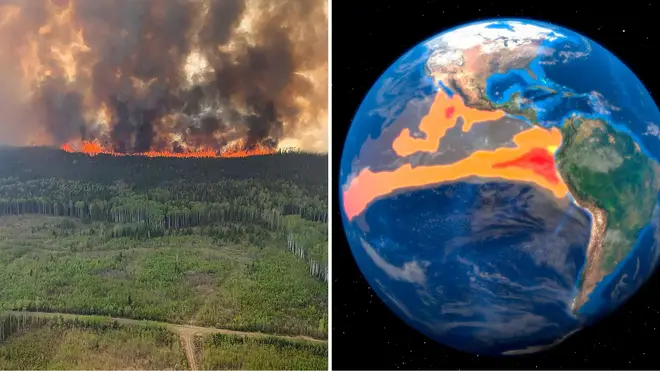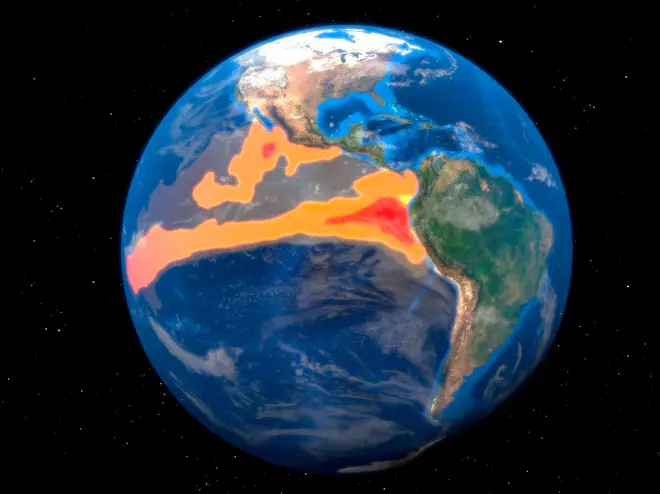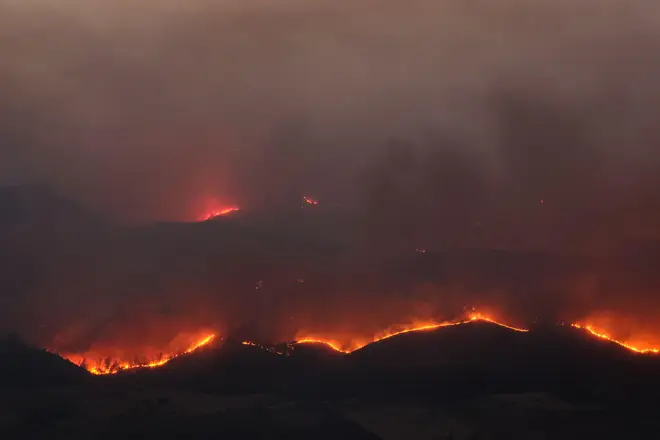
Rachel Johnson 7pm - 10pm
17 May 2023, 14:23 | Updated: 17 May 2023, 14:56

Global temperatures are likely to surpass vital 1.5C threshold for the first time within the next few years, scientists have warned.
Scientists at the World Meteorological Organisation (WMO) have warned there’s a 66% chance the world will pass the key 1.5C temperature limit between now and 2027.
This would mark the first time in human history that such a temperature is reached, and it is also predicted there is a 98% chance that the record for the hottest year on record will be surpassed by 2027
The probability of this happening has increased due to a rise in emissions from human activities.
Met Office expert Dr Leon Hermanson said this includes a rise in greenhouse gases and naturally-occurring El Niño event – a heating of the Eastern pacific which impacts rainfall and global temperatures.
He said: “We have never crossed 1.5C. The current record is 1.28C,” Dr Hermanson said.
“It’s very likely we’re going to exceed that, we might even reach 1.5C – it’s more likely than not that we will.
“It’s not this long term warming that the Paris Agreement talks about, but it is an indication that as we start having these years, with 1.5C happening more and more often, we’re getting closer and closer to having the actual long-term climate being on that threshold.”
Listen and subscribe to Unprecedented: Inside Downing Street on Global Player
Global temperature record of 1.5C ‘more likely than not’ in next five years

An El Niño, according to the Met Office, is: “Widely used to describe the warming of sea surface temperature that occurs every few years, typically concentrated in the central-east equatorial Pacific.”
The phenomena is declared when the temperatures of the tropical eastern Pacific rise above the long-term average of 0.5C and subsequently raises global temperatures a year after its development.
The WMO has said an El Niño warming event is expected in the coming months.
General secretary Professor Petteri Taalas of WMO said: “This will have far-reaching repercussions for health, food security, water management and the environment. We need to be prepared.”
While the breach of the Paris agreement limit would be a worrying milestone in the climate crisis, scientists have emphasised it is likely to be temporary.
Read more: Pacific Island leaders: Rich countries not doing enough to halt climate change
Read more: Activists hail ‘breakthrough’ as proxy adviser backs climate resolution at Total

During the 2015 Paris agreement, a global temperature limit was set to 1.5C and countries in attendance agreed to “pursue efforts” to avoid this.
Repeatedly breaching this threshold could mean the world starts seeing greater long-term impacts of global warming, including intense storms, wildfires and longer heatwaves.
The Intergovernmental Panel on Climate Change has said damage to people and wildlife will increase with every increment of global warming.
But scientists stressed that surpassing this limit one time would not mean the Paris limit has been broken, as it would need to be broken more than once before it could be considered a long-term problem.
Last year the global average temperature was 1.16C above pre-industrial levels, marking 2022 as the ninth consecutive year the global average temperature was 1C or more above pre-industrial levels.
It comes after the summer of 2022 was recorded as the hottest season and the second warmest year on record for Europe.